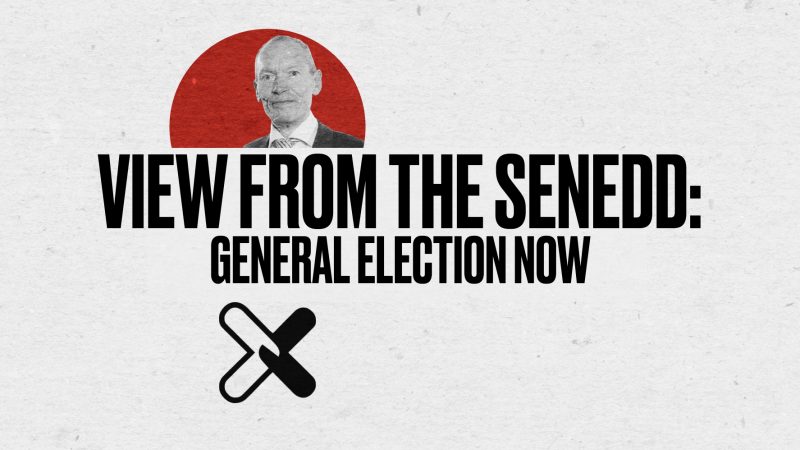
In my last piece, I remarked how neither Liz Truss or Rishi Sunak, the then PM hopefuls, inspired any optimism for us here in the Senedd. Since Truss’ victory, the past four weeks have been a roller-coaster ride in Westminster with the Tory ‘mini-Budget’ crashing the pound and plunging the financial markets into turmoil.
Throw in the sacking of Kwasi Kwarteng and the appointment of Jeremy Hunt, the reversal of “almost all” tax cuts outlined in the mini-Budget, the resignation of Suella Braverman as Home Secretary, the whipping fiasco on fracking, quickly followed by the removal of Truss herself, it’s been hard at times to keep up with all the chaos happening down the other end of the M4.
The Tories’ economic direction has enormous implications for us in Wales. Most of the Welsh government’s budget comes directly from the UK government – and it is relatively fixed. Earlier this week, deputy minister Lee Waters highlighted the work of the Institute for Fiscal Studies, which said we could now face spending cuts of 15% because of how the Prime Minister handled the economy – a Prime Minister who was backed by Andrew RT Davies, leader of the Welsh Conservatives.
Unlike the UK government, the Welsh government does not have the borrowing powers to quickly address some of the most challenging issues we face around energy bills and the wider cost-of-living crisis. This is a funding crisis firmly rooted in Downing Street. The UK government’s economic policies will create a huge hole in public finances and impact the most vulnerable.
In response to the new Chancellor Jeremey Hunt’s (still in position at the time of publication) announcement, Rebecca Evans – our Welsh government minister for finance and local government – said: “The Chancellor’s statement today has signalled a new era of austerity. Those hit hardest will be the households already struggling to make ends meet. Our public services are facing cuts, and jobs could be lost. The actions announced by the Chancellor will shrink the economy and make the recession deeper and last longer – the opposite of the so-called plan for growth.”
No doubt LabourList readers will have seen the viral clip of our First Minister Mark Drakeford responding angrily but also emotionally to the Welsh Conservative leader over austerity policies since 2010. For those who missed it, he said: “It is shocking. It is absolutely shocking to me that you think that you can turn up here this afternoon, with the mess that your party has made of the budgets of this country, of the reputation of this country around the world, and that you promise those people that there will be more to come. And you think you can turn up here this afternoon and claim some sort of moral high ground. What sort of world do you belong in?”
Mark reflected the mood felt by myself, my other Labour Senedd colleagues and the people of Wales as we face the prospect of our budget being worth up to £4bn less in real terms than when it was set last year – and all caused by Tory chaos and mismanagement in Westminster. To put this into context, this is more than the Welsh government’s annual education budget. And the Chancellor has just announced austerity 2.0!
These cuts are expected to be bigger than anything we’ve experienced since the beginning of Welsh devolution in 1999 and greater than during the decade of austerity pre-pandemic. The impact of public spending cuts to families here in Wales will be devastating. The next two years will be some of the most difficult if the now former Prime Minister’s economic policies are still implemented.
Despite the limited levers of Welsh government ministers, they are sharply focused on supporting the most vulnerable through the cost-of-living crisis. Unlike the Tories, your Welsh Labour government is providing targeted help through programmes and schemes that puts money back in people’s pocket. The Welsh Labour government has invested £1.6bn in schemes such as the £200 winter fuel support payment, the council tax reduction scheme, free school meals and pupil development grant access, which helps families with the costs of sending their children to school.
It is astonishing that in her short stint in the job, Truss still hadn’t bothered to contact Mark – or the other leaders of the devolved administrations. It is nothing but disrespect and contempt from her and she could learn a thing or two from previous Conservative PMs David Cameron and Theresa May, who made contact within a matter of days. Even Boris Johnson managed to call within his first week of office.
Whichever of them becomes the next one to occupy Downing Street, we can expect to see continuing strained relations and crippling cuts to our public services with the poorest left to pay the price of Tory incompetence and chaos.
The only hope we have now is for a general election. We need a UK Labour government; we need a UK Labour government in Westminster in partnership with a Welsh Labour government that is committed to delivering the strong, fairer and greener society – a partnership underpinned by mutual respect and co-operation, with the shared goal to grow the economy and protect working people.




More from LabourList
Government announce SEND reform in schools white paper
SPONSORED: ‘Industrial hemp and the challenge of turning Labour’s priorities into practice’
‘A day is a long time in politics, so we need ‘action this day’’